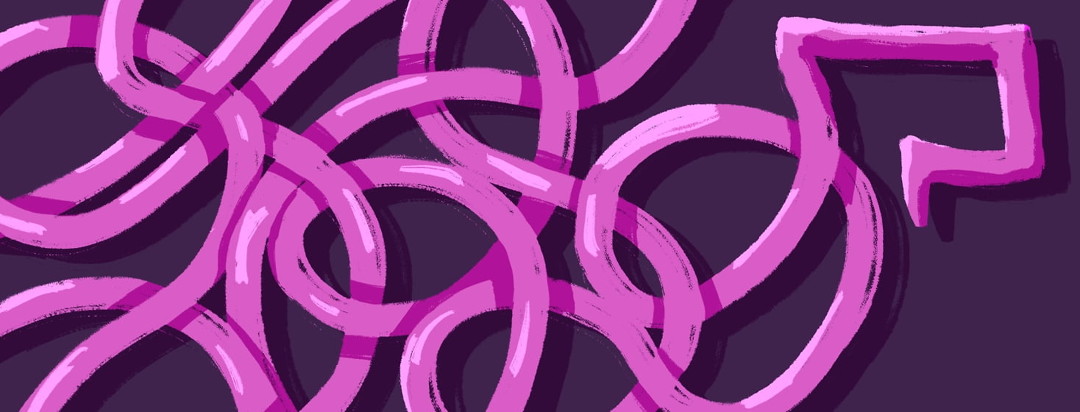The Long, Frustrating Path to an Ulcerative Colitis Diagnosis
Ulcerative colitis (UC), a type of inflammatory bowel disease (IBD), causes inflammation in some or all of the large intestine. It can be difficult to get an accurate diagnosis because the symptoms are similar to other bowel diseases, and many people with UC have normal blood test results.
How long does it take to be diagnosed with UC?
People answering the IBD In America 2019 survey reported that it took an average of 3.6 years to be diagnosed, and 84 percent had to see more than one doctor to receive an official IBD diagnosis. Specific to people with UC:
- 40 percent were misdiagnosed before getting a correct finding.
- 36 percent saw two doctors and 19 percent saw three doctors before reaching an accurate diagnosis, significantly more than people with other types of IBD.
- 91 percent underwent a colonoscopy to get their diagnosis
When do symptoms of ulcerative colitis start?
Most of our In America respondents experienced their first UC symptoms before age 35, and rarely after age 55:
- 11 percent were younger than 18
- 21 percent were ages 18-24
- 23 percent were ages 25-34
- 19 percent were ages 35-44
- 11 percent were ages 45-54
- 9 percent were ages 55-64
- 4 percent were ages 65-74
How people felt about getting a diagnosis of UC
It can be a long, frustrating trek to finally get a correct diagnosis of ulcerative colitis. The range of emotions generated by a finding of UC varied from one person to another runs the gamut, from fear to sadness to confusion. When asked to think back to the day of their diagnosis, here is what people had to say:
- I was really scared and sad.
- I felt defeated. Like something was wrong with me.
- Awful. I thought I was going to die. Like I had cancer. No one believed me about my symptoms.
- Confused, depressed.
- Overwhelmed yet relieved.
- Embarrassed that I needed more privacy to use the restroom than my peers.
- Scared and drained.
- Like I was crazy because my doctor kept telling me I needed to take Imodium and eat the BRAT diet and it wasn't working.
- Extremely drained and frustrated with never getting a proper diagnosis. I was heartbroken to learn it was IBD.
- Overwhelmed. My daughter was graduating from high school and moving on to college.
- Absolutely crushed. Terrified. Angry. Depressed. Anxious. Lonely.
- Sad, useless, tired.
- I was feeling extremely depressed and didn’t want to live anymore.
- Frustrated, I guess. At that time my only fear was fear of having accidents. I didn’t know how UC would come to define my life and impact relationships.
Some people felt relief mixed with frustration at finally having an answer:
- I felt frustrated with the doctors that weren't diagnosing me properly--it felt like they weren't listening because they continued giving me a prescription for the same medication that wasn't working.
- Relieved to have a diagnosis but nervous about it.
- Worried, drained, exhausted. After the process, I felt relieved.
Confusion about their diagnosis, what it meant, and how they were going to take care of themselves going forward was another frequent emotion:
- Initially, I was very frustrated because it took several months to get a diagnosis. Once I received the diagnosis, I was relieved to have an answer, but soon after became very confused about why/how I got this disease, and what I needed to do moving forward.
- Confused, not even knowing what to ask, just feeling sick all the time.
- Very confused. I did not know how much it would affect my life.
- Not quite sure of the diagnosis. Felt like I could heal myself without drugs. I took the prescribed drugs for 2 months; didn’t like the side effects and quit taking them. Apparently, my UC went into remission until age 65.
- Glad to have answers and known treatment. Unsure of what the long-term future would hold.
The IBD In America 2019 online survey gathered insights from individuals diagnosed with various types of IBD to better understand their diagnosis and treatment, as well as the impact on their lives. We’re thankful to have each and every one of you as a part of our community!

Join the conversation